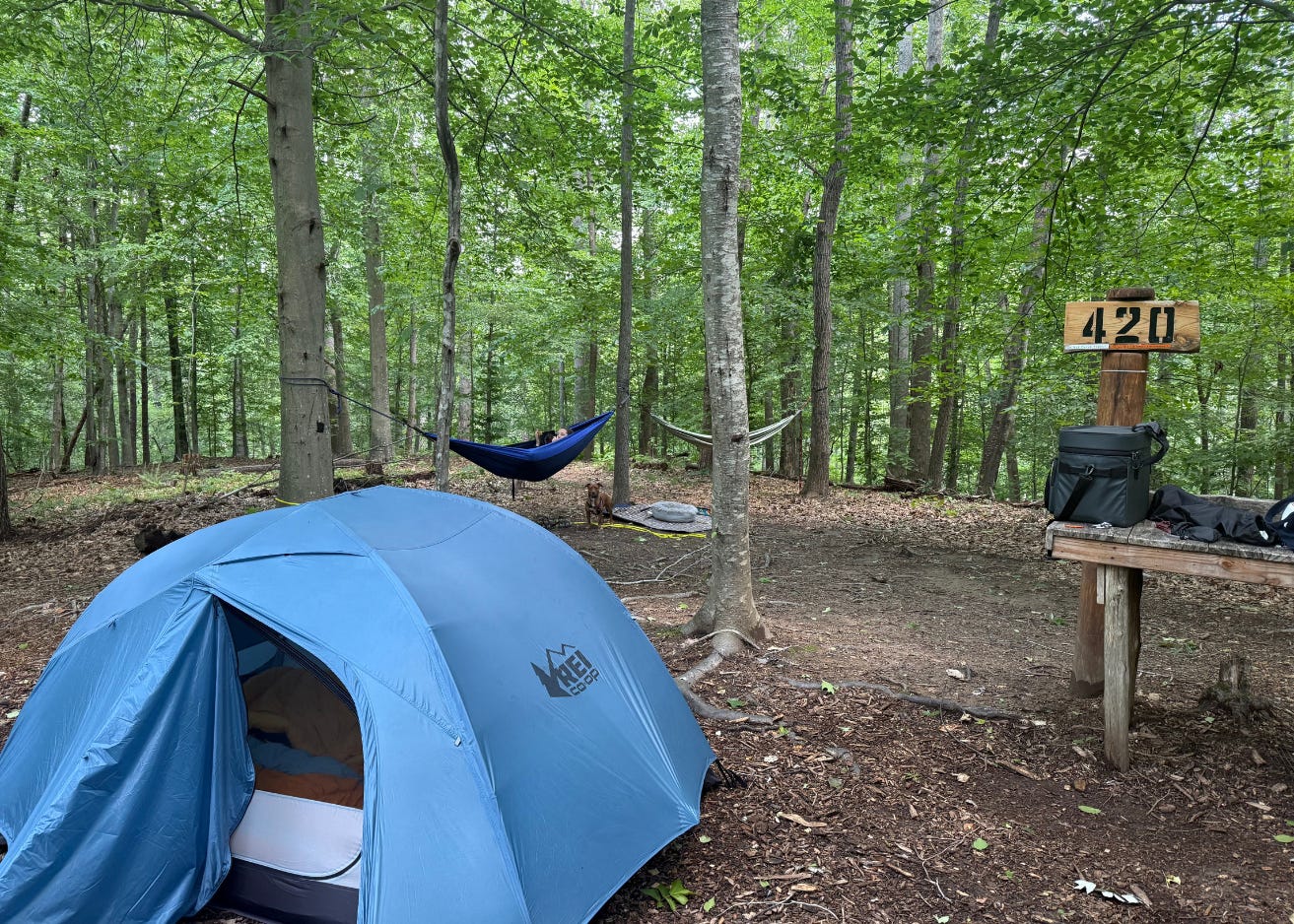I’ve been procrastinating writing a post because I have lots of things to say, but none of them feel like they warrant a full post on their own. So, breaking with tradition gasp, I’m writing a state of the union (Mal’s version).
Four score and seven years ago… just kidding.
The past couple of weeks have been an emotional rollercoaster. The catalyst was a casual email from GW’s Provost announcing that there would be no merit increases to staff salaries this year. After a year of working tirelessly, it was devastating to see the only tangible recognition of my performance taken away. I understand the broader challenges in higher education right now and appreciate the complexity of leadership in this climate — but as a high performer, it was demoralizing.
Then, a light: I was offered a final-round interview at a university in California for a role very similar to my current one — but paying double. For more context on why this was so exciting, read this. It felt like a sign that my West Coast move might finally happen, and on a manageable timeline.
Long story short, I flew to California, gave — in my estimation — one hell of a six-hour interview, and then heard nothing for a week. Finally, on Thursday, I got the call: they’d offered the position to the other finalist. I was bummed. My pride was bruised, and my confidence took a hit.
Returning from a week in California back to my job at GW was tough. I had mentally prepared for change, and stepping back into the status quo felt suffocating — even though, most of the time, that status quo is actually quite lovely.
Around this same time, I received my written student feedback from course evaluations. Overall, the feedback was positive — encouraging and helpful. But one student left an incredibly descriptive and scathing review. I pride myself on being an attentive, caring, and engaging instructor, so reading such harsh words was painful. At first, I was defensive, but as I’ve sat with the feedback, I can acknowledge that this was one student’s experience. While I wish they hadn’t had that experience, I can still learn from it.
All of this was further amplified by my prescription insurance rejecting a refill for my migraine medication. (Additional context here.) TL;DR: I’ve been on a preventative migraine medication for the past year, which reduced my migraines from about 15 per month to just two or three. As someone who’s dealt with chronic migraines for years, it’s felt like magic — and with no side effects!
After some digging, I learned that my insurance had rejected the refill because of a new requirement: if you want a Qulipta prescription, you must first try two triptans — and both must “fail.” I tried sumatriptan two years ago and had terrible side effects. It was like trading a migraine for the flu: body aches, nausea, limb numbness. Plus, triptans aren’t preventative; they treat migraines once they’ve started.
It’s absurd that they’re considering triptans a replacement. Qulipta prevents my migraines from starting. Why would I switch to something I have to take after the migraine begins — especially when Qulipta has worked so well for me?
I ran out of Qulipta last Thursday and have had four migraines since — more than I’ve had in the past few months combined. The next step is for my primary care provider to prescribe a second triptan so I can "prove" it doesn’t work and get back on Qulipta.
One of the biggest variables in reducing my migraines is simply eating and drinking enough throughout the day. Lately, I’ve struggled with a lack of appetite, making it hard to get enough calories. On top of that, I’m finally uninjured (for the first time since last July!) and able to move in the ways I want to again.
For these reasons, I booked a session with my friend Allegra — a registered dietitian and one of the few people I truly trust on this topic. I expected we’d discuss how to increase my calorie intake and call it a day. But during the session, it became clear that I still have many disordered eating habits that interfere with intuitive eating. Most of these habits are subconscious (like: don’t eat too much fruit or you don’t need another piece of toast), so they’re hard to catch in the moment.
My biggest takeaway: I’ve spent much of my life ignoring my food preferences, always choosing what I believed was the "healthier" option. As a result, I’m out of touch with what foods I actually enjoy, and my list of “acceptable” foods is very narrow.
I assumed I’d do one session with Allegra, start eating more, and — voilà — problem solved. Turns out… I might need a bit more self-reflection first.
If this were a presidential state of the union, this is where the speech would crescendo with inspirational platitudes. But for now, I’ll simply close by saying: the state of the union is tired. She’s a little grumpy, frustrated, and perhaps a bit directionless.
pause for applause
Thank you — and may our lord and savior Xaden Riorson bless America.




